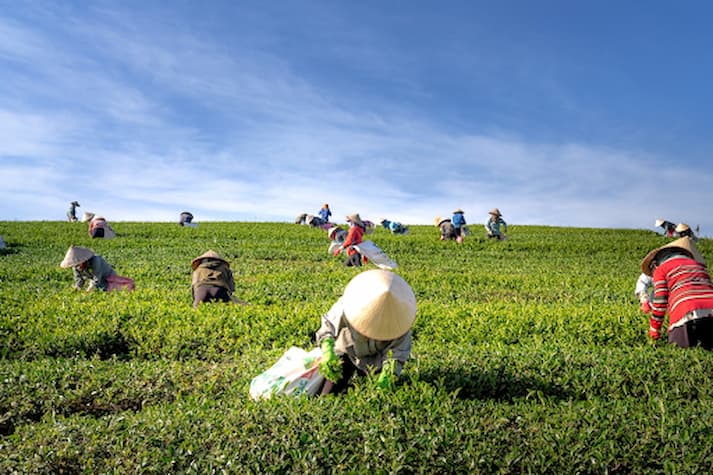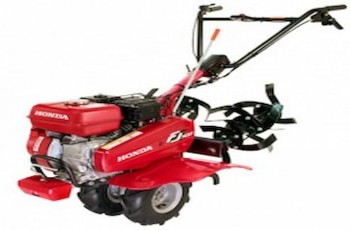5 Differences between Traditional and Modern Agriculture
21 November 2023

Are you aware of the developments in agricultural technology? Understanding the differences between traditional and modern agriculture can help improve the productivity of crops. In the past, agriculture relied heavily on weather and nature, with the limited technology available.
Farmers only had access to traditional tools such as hoes and hammers for planting or harvesting crops. However, with the introduction of machines and advanced technology, agricultural activities have become more efficient and productive.
Data and analysis are available to help farmers optimize crop production and reduce losses. However, other differences between traditional and modern agriculture can also be seen in the availability of raw materials and markets.
Farmers relied on local markets to sell their agricultural products in the past, but now they have access to global markets. Additionally, better technology and logistics have made distribution more efficient.
As a modern farmer, it is essential to keep up with technological advancements and stay caught up with other farmers. Understanding the differences between traditional and modern agriculture is the first step toward improving productivity. Here are five differences to consider:
1. Technology
One of the most significant differences between traditional and modern agriculture is technology. Historically, agriculture relied on simple and manual techniques such as forks, molds, and ox-drawn plows. Farmers had to work hard to till the land, plant crops, and harvest yields.
Nowadays, agriculture depends heavily on modern technology. Farming machines such as tractors have become more efficient in tilling the land and planting crops.
Read aslo: 2 Types of Tractors based on their Functions
Furthermore, advanced irrigation systems ensure crops get adequate water for healthy growth. Finally, data analysis and information technology can be used to monitor and predict environmental conditions, weather, and crop yields.
Modern farming equipment has significantly helped reduce labor costs without compromising the quality and quantity of the harvest. Instead, these machines have made crop production more stable and enabled farmers to meet high market demand. Honda Power offers advanced tools such as the WB20XN NF water pump system for irrigation and the Cultivator-FJ500 for faster soil tillage.
2. Scale
Another significant difference between traditional and modern agriculture is the scale of farming. In the past, farming was small-scale and traditional, where farmers only produced enough crops to meet household needs.
However, modern agriculture is characterized by large-scale farming that caters to local and global markets. The scale of contemporary agriculture enables farmers to produce high yields, improve crop quality, and meet market demands.
3. Productivity
Due to modern farming techniques, the productivity of crops has significantly improved. In the past, farmers had to rely on weather and nature to produce crops, which often resulted in low yields. With the introduction of modern technology, farmers can grow more crops with minimal labor and resources.
4. Production Output
The following are the differences between agriculture in the past and present, as seen from the aspect of production output. In the past, agriculture was highly dependent on nature and environmental factors such as weather and water. The number of agricultural products produced could be deficient when lousy weather occurs.
Ultimately, such events would impact the survival of communities that depended on agricultural land. However, compared to now, the use of technology and scientific knowledge can significantly increase agricultural production.
Through various testing, it can create superior seeds. In addition, pesticides, fertilizers, and better irrigation systems can assist farmers in overcoming lousy weather problems.
Farmers can also monitor plant and environmental conditions using sensors and satellites. As a result, agricultural production today is even more stable and higher compared to the past.
Scientific technology in agriculture also helps reduce environmental problems such as soil erosion and water pollution. But, of course, the survival and availability of food for the community need not be a concern.
5. The Environment
The environment is the final factor differentiating agriculture in the past and present. In the past, agriculture was more natural and maintained its surrounding environment. So did it with environmentally friendly farming techniques such as crop rotation and natural fertilization.
Farmers also maintained environmental resources, such as water and soil, to ensure that agricultural production remained stable from one season to the next. Meanwhile, agriculture today is technical and requires more complex environmental management.
Farmers use chemicals and pesticides to ensure their agricultural products grow well and are free from pests or diseases.
However, it should realize that these practices, such as water and soil pollution, negatively impact the environment. Therefore, modern agriculture requires good environmental management to meet market demands without endangering the environment.
Although environmental initiatives such as green and organic agriculture exist, many farmers do not practice them because they require higher costs. Yet, these solutions offer alternatives for farmers who want to run their businesses in a more environmentally friendly way.
Read also: 10 Ways to Turn on the Right Hand Tractor Engine
The differences between agriculture in the past and present are indeed significant. For example, in the past, agriculture relied on environmental and weather factors. Meanwhile, agriculture today depends on technology and scientific knowledge to overcome various agricultural problems.
If you want better changes, such as an increase in the quality of agricultural products, it is time to have these sophisticated tools. Invest in equipment that helps speed up agricultural work, such as tractors, brush cutters, or cultivators. Find everything you need only at Honda Power Products! Contact the Honda Power team for orders!

Honda Power Products Indonesia
Honda Power Products menyediakan mesin serbaguna, generator, pemotong rumput, pemotong sikat, pompa air, dan mesin tempel.

